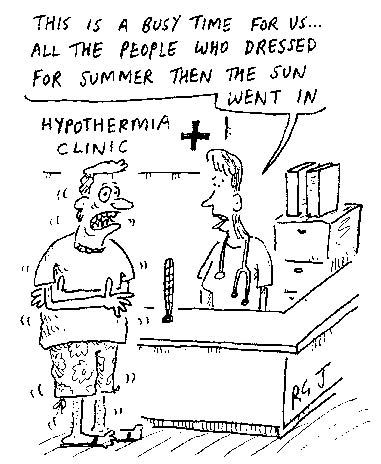Am I allowed to say this? Hell, I’m going to anyway.
Am I allowed to say this? Hell, I’m going to anyway. I’ll deny it if it ever gets me into trouble. I’ll claim The Spectator mistakenly put my byline on top of a column by somebody else. ‘Wasn’t me,’ I’ll say, when the extraordinary rendition SWAT team kicks down my door. ‘Must have been Liddle. He sounds the sort. I wrote the other one that week, maybe about the royal wedding. Nice balaclava, by the way.’
So here goes. I watched the American crowds, cheering into the night about the death of Osama bin Laden, and my first, overwhelming, involuntary reaction was to sneer. There. I’ve said it.
It wasn’t a new sort of sneer. It’s a sneer with which I’m quite familiar. The thing is, I haven’t previously found myself making it at images of Washington or Times Square. Normally it’s Jenin or Gaza. Maybe Beirut. Maybe Kabul. You get what I’m driving at, right? The men had less hair on their faces, and you could see that the women actually had faces, and hair on their heads. The chants were ‘USA! USA!’ rather than ‘Allah! Allah!’, admittedly, and nobody was firing an AK-47 into the sky, or burning a flag. But you could tell, from the vibe, that this was just because they didn’t have AK-47s, and al-Qa’eda doesn’t have a flag. It’s not a sneer I’m used to doing at us, is my point. It’s a sneer reserved for them.
I’m not proud of this. Frankly, on an intellectual level, I’d take issue with myself. 9/11 wasn’t just a televisual spectacle, I’d say. It was the biggest terrorist assault in history, with a death toll equivalent to a 7/7 once a week for a year. The US military death toll since then, staggeringly, has been two and a half times that. Iraq didn’t have anything to do with Osama bin Laden, obviously, but I do appreciate that America feels differently on a visceral level, because George W. Bush did such a good job of portraying him as a warlock.
So look, I’m not calling anybody unreasonable, except for maybe myself. I’m just saying, I look at the sight of a mob cheering a death, and I think to myself, ‘lynchings’. I think, ‘This is not how I expect my side to behave.’ Or, to be more accurate, I think, ‘Aesthetically, I’d rather we looked more enlightened and consensual.’ Because, as it is, we look more or less identical to the other side. It feels like hypocrisy. It feels like admitting we’re no better, just coming from a different place.
I confess this because I can’t possibly be the only one and I reckon that sneer deserves scrutiny. I felt something similar during the early days of Iraq itself, when coalition forces (remember when that phrase didn’t make you think of Liberal Democrats?) killed Saddam Hussein’s two sons, Uday and Qusay, and published photographs of a pair of gruesome, touched-up, stitched-together corpses to prove it. I felt it just last week, when our forces in Libya made a glaring attempt to kill Colonel Gaddafi, and instead killed his son and grandsons. Really, I suppose, what I’m upset about is being forced to confront the truth that people are being killed in my name — bullets and shrapnel are going into flesh; bits of human bodies are falling off — and that this is, sometimes, incontestably a good thing.
Only, kill people quietly, and I’m fine. Switch them off, don’t make a fuss about it, delete them from our lives, rub them out, allow yourself the sober satisfaction of a problem solved. That, I’m OK with. But shout about it, revel in it, look it straight in the eye, and I’m as uncomfortable as anything. This isn’t how I feel my civilisation ought to feel. ‘We should be better than that,’ I want to say. Whereas what I suspect I mean really is ‘We should pretend we are.’ Is that hypocritical? Or is it civilised? I can’t decide. Maybe both.
Although the world’s not all bad. I just finished a John Le Carré. The Honourable Schoolboy. Mid-era Le Carré, written in 1977, the year of my birth. It’s set mainly in the Far East, and it got me thinking. Early Le Carrés are predominantly in Britain or Germany, aren’t they? Single bars burning on three-bar fires; men who are not quite gentlemen turning a collar up against the cold, as grey rain falls on grey streets, and good people die suddenly and hopelessly for plot reasons you don’t quite understand.
By the end of the 1970s, already, the quest for this sort of bleakness means he has to go further afield. The Far East gives him only a single book before it all gets gleaming neon and flatscreen. He tries the Middle East, but there’s too much falafel and bombs and not enough flat, crushing despair. The former Soviet Union lasts a while, but by the mid-1990s that’s gone all Dolce & Gabbana, too. So he switches to Africa. The Nigerian badlands, the Congo. Here, at least, his characters are free from the relentless march of hope.
You see my point? The world must be getting ever better, because otherwise you’d still get John Le Carré novels set in the sort of places normal people go. You could probably plot some sort of index. Haiti next, I reckon.
Hugo Rifkind is a writer for the Times.







Comments